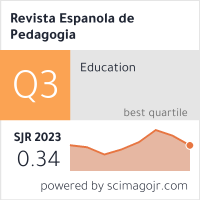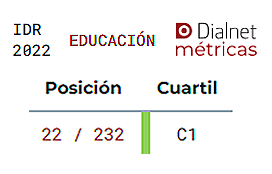Abstract
In recent times, computers and internet have penetrated secondary schools in Africa but with greater attention to students’ computer literacy than teachers. At the same time, previous studies on digital literacy of teachers are unsustainable and mainly skewed on pre-service teachers than in-service teachers. These realities point to the need to investigate and implement effective and sustainable initiatives for improving digital literacy and online life-long learning for in-service teachers in Africa. This paper therefore presents a specialised MOOC platform known as TEP (Teachers’ E-learning Portal) for digital literacy and online life-long learning for in-service teachers in Uganda. TEP is built for environments with inadequate access to computers, internet and technical assistance.
As such, TEP is accessible online or offline, managed by accredited local universities in collaboration with beneficiary secondary schools, and runs on existing resources in schools (technical personnel, computers and internet). Results from initial implementation of a computer literacy MOOC through TEP indicate that irrespective of age, when teachers are adequately supported internally by their schools and externally by a university, can improve their digital literacy and subsequently engage in online life-long learning.
In addition, the results both in terms of high percentage of teacher participants’ completions (89%) and high volume of educational e-content generated, confirm TEP as an effective, attractive, and self-sustainable MOOC platform for in-service teachers’ in resource constraint environments. The paper finishes with an analysis of the relevance of TEP to Africa.
Cite this article as: Oyo, B., Kalema, B. M., & Byabazaire, J. (2017). Los MOOC para profesores en ejercicio: el caso de Uganda y las lecciones para África | MOOCs for in-service teachers: The case of Uganda and lessons for Africa. Revista Española de Pedagogía, 75 (266), 121-141. doi: 10.22550/REP75-1-2017-07
- Keywords:
- digital literacy
- in-service teachers
Referencias | References
Adomi, E. & Kpangban, E. (2010). Application of ICTs in Nigerian secondary schools. Library Philosophy and Practice, 345. Retrieved from: http://digitalcommons.unl.edu/libphilprac/345
Amenyedzi, F. W. K., Lartey, M. N. & Dzomeku, B. M. (2011). The use of computers and internet as supplementary source of educational material: a case study of the senior high schools in the Tema Metropolis in Ghana. Contemporary Educational Technology, 2 (2), 151-162.
Andema, S., Kendrick, M., & Norton, B. (2013). Digital literacy in Ugandan teacher education: insights from a case study. Reading & Writing, 4 (1), 1-8.
Buabeng-Andoh, C. (2012). Factors influencing teachers’ adoption and integration of information and communication technology into teaching: a review of the literature. International Journal of Education and Development using Information and Communication Technology, 8 (1), 136-155.
Byabazaire, J. & Oyo, B. (2014). Student centred learning in Uganda: the Mwalimu open educational resource. Saarbrücken: Lambert Academic Publishing.
Christensen, C., Steinmetz, A., Alcorn, B., Bennett, A., Woods, D., & Emanuel, E. (2013). The MOOC Phenomenon: Who Takes Massive Open Online Courses and Why? Social Science Research Network. Retrieved from: http://papers.ssrn.com/sol3/papers.cfm?abstract_id=2350964
Furuholt, B. & Kristiansen, S. (2007). A ruralurban digital divide? Regional aspects of internet use in Tanzania. International Journal on Information Systems in Developing Countries, 31 (6), 1-15.
GSMA. (2014). Digital inclusion report. London. Gruszczynska, A., Merchant, G., & Pountney, R. (2013). Digital futures in teacher education: exploring open approaches towards digital literacy. The Electronic Journal of e-Learning, 11 (3), 193-206.
Hall, R., Atkins, L. & Fraser, J. (2014). Defining a self-evaluation digital literacy framework for secondary educators: the DigiLit Leicester project. Research in Learning Technology, 22, 21440.
Horan, S. (2013). The Effect of Learning Styles and E-Learning Tools on the Training of ICT to Digital Immigrants in Life Long Learning. Published master’s dissertation. Dublin Institute of Technology, Ireland.
Howard, S. K., Chan, A., & Caputi, P. (2015). More than beliefs: Subject areas and teachers’ integration of laptops in secondary teaching. British Journal of Educational Technology, 46 (2), 360-369.
Howie, S. J., Muller, A., & Paterson, A. (2005). Information and communication technologies in South African secondary schools. Cape Town: HSRC Press.
Labbas, R. & Shaban, R. E. (2012). Teacher development in the digital age. Teaching English with Technology, 13 (3), 53-64.
Lorenz, R., Eickelmann, B., & Gerick, J. (2015). What affects students’ computer and information literacy around the world? – An analysis of school and teacher factors in high performing countries. Proceedings of 26th International Conference of SITE (Society for Information Technology & Teacher Education), Las Vegas, US, 1212-1219.
Jobe, W. (2013). A Kenyan Cloud School. Massive Open Online & Ongoing Courses for Blended and Lifelong Learning. Open Praxis, 5 (4), 301-313.
Jordan, K. (2014). Initial trends in enrolment and completion of massive open online courses. International Review of Research in Open and Distance Learning, 15 (1), 130-160.
Macleod, H., Haywood, J., Woodgate, A., & Alkhatnai, M. (2015). Emerging patterns in MOOCs: Learners, course design and directions. TechTrends, 59 (1), 56-63.
Mathipa, E. R. & Mukhari, S. (2014). Teacher factors influencing the use of ICT in teaching and learning in South African urban schools. Mediterranean Journal of Social Social Sciences, 5 (23), 1213-1220.
Markon, A. G. (2013). Perspectives on ICT Adoption in Ugandan Schools. Published master’s dissertation. Michigan Technological University. Retrieved from: http://www.mtu.edu/peacecorps/programs/science-education/pdfs/tony-markon-thesis-final.pdf
Mbangwana, M. A. (2008). Introduction of ICT in Schools and Classrooms in Cameroon. In K. Toure, T.M.S. Tchombe & T. Karsenti (Eds). ICT and Changing Mindsets in Education. Bamenda: Langaa.
Mdlongwa, T. (2012). ICT as a means of enhancing education in schools in South Africa: challenges, benefits and recommendations. Policy Brief, 80. Africa Institute of South Africa.
Mooketsi, B. E. & Chigona, W. (2014). Different Shades of Success: Educator Perceptions of Government Strategy on E-Education in South Africa. The Electronic Journal of Information Systems in Developing Countries, 64 (8), 1-15.
Murphy, P. & Wolfenden, F. (2013). Developing a pedagogy of mutuality in a capability approach: Teachers’ experiences of using the open educational resources (OER) of the teacher education in sub-Saharan Africa (TESSA) programme. International Journal of Educational Development, 33 (3), 263-271.
Ndlovu, N. S. & Lawrance, D. (2012). The quality of ICT use in South African classrooms. Paper presented at Towards Carnegie III Conference. University of Cape Town, South Africa. Ngimwa, P. & Wilson, T. (2012). An empirical investigation of the emergent issues around OER adoption in Sub-Saharan Africa. Learning, Media and Technology, 37 (4), 398-413.
Olson, J., Codde, J., Demaagd, K., Tarkleson, E., Sinclair, J., Yook, S. et al (2011). An analysis of e-learning impacts and best practices in developing countries with reference to secondary school education in Tanzania. A publication of Michigan State University. Retrieved from: http://tism.msu.edu/ict4d
Ottestad, G. (2013). School leadership for ICT and teachers’ use of digital tools. Nordic Journal of Digital Literacy, 8, 107-125.
Oyo, B. & Kalema, B. M. (2014). MOOCs for Africa by Africa. International Review of Research in Open and Distributed Learning, 15 (6), 1-13.
Voogt, J., Erstad, O., Dede, C., & Mishra, P. (2013). Challenges to learning and schooling in the digital networked world of the 21st century. Journal of Computer Assisted Learning, 29 (5), 403-413.
Walls, E., Santer, M., Wills, G., & Vass, J. (2015). A blueprint strategy for e-education provision in South Africa. The Electronic Journal of Information Systems in Developing Countries, 70 (7), 1-24.
Warugaba, C., Naughton, B., Hedt-Gauthier, B., Muhirwa, E., & Amoroso, C. L. (2016). Experience with a Massive Open Online Course in Rwanda. International Review of Research in Open and Distributed Learning, 17 (2), 222-231.
Wolfenden, F., Umar, A., Aguti, J., & Abdel, G. A. (2010). Using OERs to improve teacher quality: emerging findings from TESSA. Paper presented at the sixth Pan Commonwealth Forum on Open Learning, Kochi, India.
Citación recomendada | Recommended citation
Oyo, B.,
Kalema, B. M.,
&
Byabazaire, J.
(2017)
.
MOOCs for in-service teachers: The case of Uganda and lessons for Africa.
Revista Española de Pedagogía, 75(266).
https://www.revistadepedagogia.org/rep/vol75/iss266/8
Licencia Creative Commons | Creative Commons License
Esta obra está bajo una licencia internacional Creative Commons Atribución-NoComercial 4.0.
This work is licensed under a Creative Commons Attribution-NonCommercial 4.0 International License

- Citations
- Citation Indexes: 7
- Policy Citations: 1
- Usage
- Downloads: 126
- Abstract Views: 50
- Captures
- Readers: 23
Palabras clave | Keywords
digitalliteracy, in-serviceteachers







